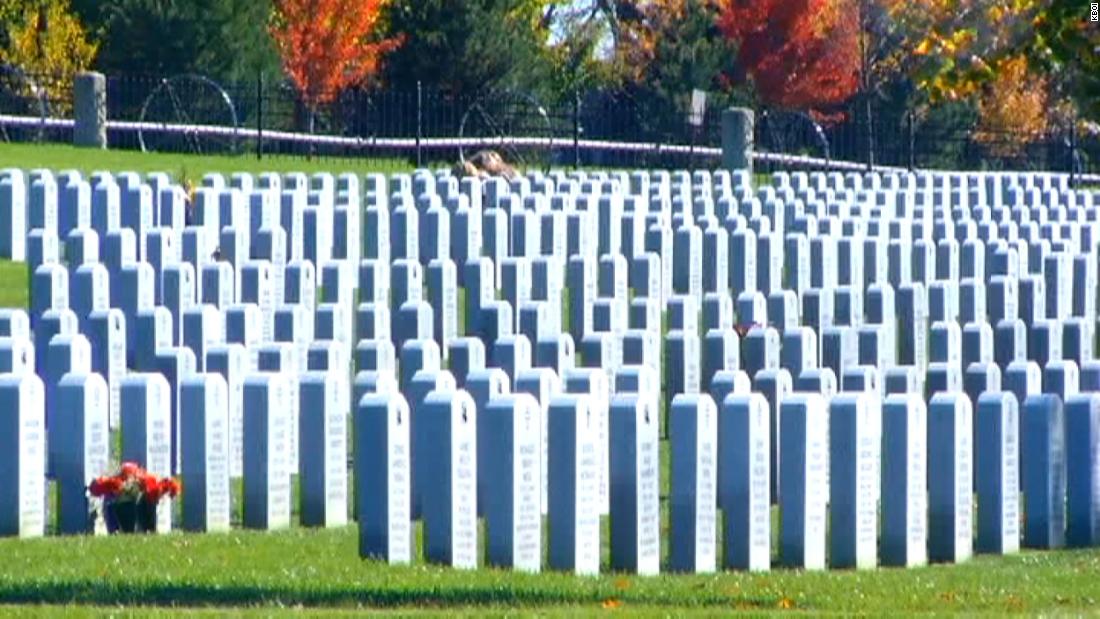
Nancy Lynchild died of cancer in 2012. It was too soon. Too soon for Campbell, who lived another six years without the love of her life. Too soon for a nation that had not yet federally legalized same-sex marriage, leaving Campbell with little recourse when Veterans Affairs denied her request for Lynchild’s burial on the same hallowed ground to which other military spouses were entitled.
For most, the honor has been hard won with bravery and unerring love.
Brad Avakian was one of the Oregon state leaders who helped Lynchild secure a place for her wife at Willamette. In the process, he got to know the couple he describes as “remarkable.”
“The word ‘fight’ is used so often in politics it loses its meaning,” he told CNN. “But this was a fight.”
“Linda had expressed for so long the dismay that she and her father had given their entire careers to this country and this country would not recognize her as a human being in return,” Avakian said.
Avakian said his repeated appeals to then-President Barack Obama went unheeded. It was Eric Shinseki, former US secretary of Veterans Affairs, who advanced Campbell’s case and eventually granted her the waiver she needed for Lynchild’s burial.
Avakian and his wife remained close with Campbell after that. She showed them the apartment she bought across the river. When she died, Avakian spoke at her funeral. There was no pomp and bluster, he said. Just a feeling of warmth, of celebration. Of two people together again, as they should be.
“They were two of the most loving, compassionate people you’d ever want to meet,” he said. “Linda had a disciplined and driven military side to her, in beautiful combination with a loving, compassionate view of the world. It showed in everything she did, and it showed in her relationship.”
Taylor’s righteous defiance was a hallmark of her activism, her sister Karen Hicks said.
When Taylor took on the lawsuit, Hicks said she asked her sister if she thought she was taking on too much.
“She said, ‘No, when you feel strongly enough about something, you get it done.'”
A resting place at a national cemetery is a great honor for military veterans, one that was denied many same-sex couples until 2015. However, gay veterans have always fought for their right to be included and celebrated in such spaces.
To be recognized in death not only for their service, but for their true selves, was a righteous quarrel for these veterans, who served their country despite criminalization and oppression of their identities.
When Worthington died, the community came together to support Sims in his grief. After all, they were family.
“Family can be such a loaded word for LGBTQ people,” Wyma said. “So many have difficult relationships with their own families. That’s why chosen family is so important.”
It was very hot the day Wyma helped lay Sims to rest with his husband. Family — chosen and otherwise — were in abundant attendance. The military staff at the Dallas-Forth Worth cemetery were nothing but lovely, she said. In fact, it wasn’t until after the service that the true significance of the event dawned on her.
In the moment, under a searing Dallas sun, she was just grateful to pay remembrance to them as they were, and name the love they had chosen for each other.
“We were in a military place. There were people in uniform, guards nearby. And I felt free to speak about their time together,” she said. “It was a privilege to be able to speak openly about how much they loved each other.”
With time, more such couples are destined to find similar peace together. When they are laid to rest, the tireless battles of their forebears will ensure they are honored wholly — as veterans and as family.
